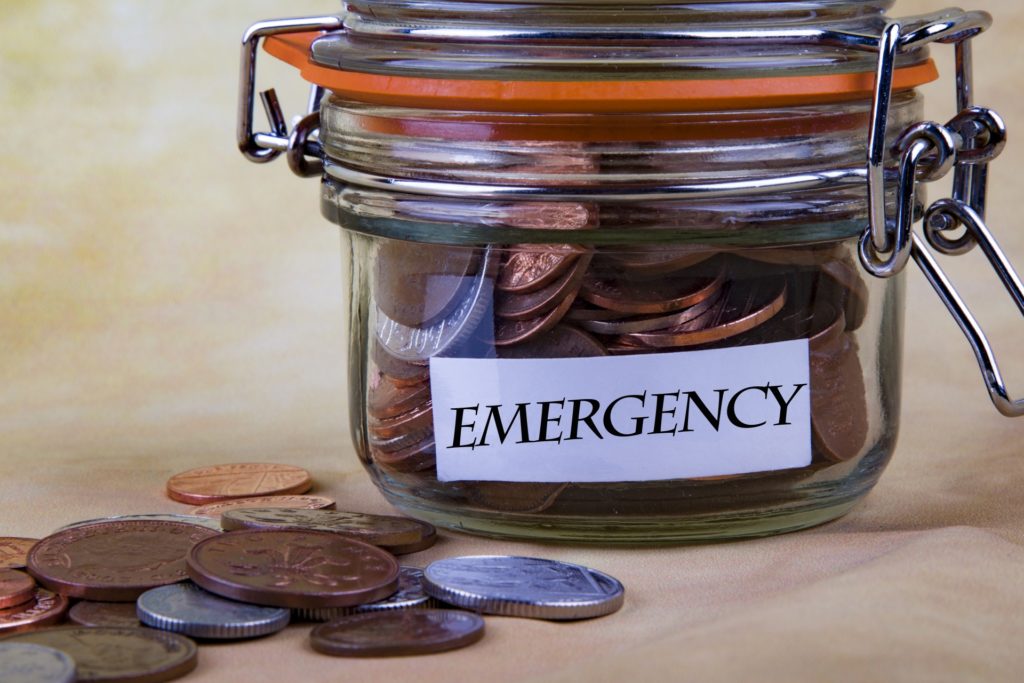The Finance Side of Prepping
Biblical scriptures have warned of the last day we spend on Earth. Some groups believe the end of the world will be wrought by global warfare, like terrorist group ISIS. Others think that God will collapse the heavens, ridding everyone from the face of Earth. Common groups of thought in support of doomsday scenarios’ possibility cite large-scale technological and electrical failure, economic shutdown, nuclear warfare, and natural disasters as sufficient catalysts for worldwide chaos and incivility.
Many beliefs and predictions span the collective minds of doomsday preppers around the world. Given a doomsday scenario rears its ugly head sometime in our lives, nobody would want to be unprepared. Not having one’s plans, supplies, and equipment together for such an event would instantly spur anxiety and worry about how he would survive himself, let alone his friends and family.
Many people live from one paycheck to the next, not leaving much room to buy excess food, equipment, and other often-pricey things people need to survive in the event of a national, global, or worldwide disaster scenario. Successfully planning for potential doomsday situations is difficult itself, not to mention paying for every single thing necessary to keep you and your family alive. Included below are a few items that every doomsday prepper should have if their fears become true, along with their financial burdens and related necessity.
Learned skills and research abilities
Automotive repair, patient care during serious injuries, and construction are just a few skills able to be learned from trade schools that would prove helpful in end-of-society scenarios. Advanced cardiac life support would be crucial in treating heart attack or stroke, and obtained by receiving ACLS recertification. Trade schools degrees and such certifications are relatively inexpensive to purchase.
If one were able to survive long-term, being skilled with researching science-related fields would undoubtedly help. In the event of attacks on life itself and the Earth, to repair biological, chemical, or other damage wrought on Earth’s flora and fauna, one would need to be familiar with researching viable fixes that would have positive effects. While there are troves of research available in archives, doomsday scenarios with detrimental effects on Earth’s habitat and ecosystems have never been studied. Earning a doctoral degree would help you, individually, and the entirety of mankind, making this level of research-based degrees wholly worth it.
Water purification system
In-home, simple purifiers available in supermarkets that attach onto kitchen sinks are not sufficient for a doomsday scenario, nor are water pitchers that filter water. These are incredibly cheap, but have no place in cleaning water from dead animals, swamps, or excrement.
Commercial-quality water purifiers would be most ideal for situations in which our time on earth, as humans, is closing quickly. Low-end models range slightly more than $2,000, and virtually no upper ceiling.
In a doomsday scenario, infrastructure would certain unfurl over time. Underground water pipes wouldn’t be repaired, snapped electricity lines and broken transistors would remain, and sewer systems would be backed up. We often take the importance of societies having clean water for granted, as it has flowed freely out of kitchen faucets and spouts for all of our lives.
While you can stock up on water, it’s impractical to purchase and safely store a lifetime’s worth of purified or distilled water. Buying this water wouldn’t be incredibly expensive for living a few months, but any longer than that and it’s impractical. Eventually, clean water would run out. Also, because people drink so much water — our bodies range between 50% and 75% water — and can’t skimp on H2O, the massive size needed to store such water would be impractical, expensive, and not a good investment.
Even if you contracted a construction company to craft a safe, secure, food-grade quality tank with the 6,000-plus gallons a human would need to live over 60 years at eight 8-ounce glasses of water per day, the cost far outweighs its benefits.
Food
Purchasing basic farming equipment to farm fruits, vegetables, and nuts on a small-scale basis would certainly be worth the investment. This is far more expensive than simply buying food, and also more tasty than eating canned, preservative-filled foods forever.
Only buying food would be relatively inexpensive, but unsustainable over the long-term, making this a bad investment.
All in all, spending more money now is well-worth the benefit of many objects, functions, and skills in doomsday scenarios. Taking the easy way out now and purchasing bottled water, not purifiers; working, not getting educated; and buying food, not farming equipment would all prove to be bad investments. Pay more now and have the potential to survive longer, later.
If you enjoy the content at iBankCoin, please follow us on Twitter





